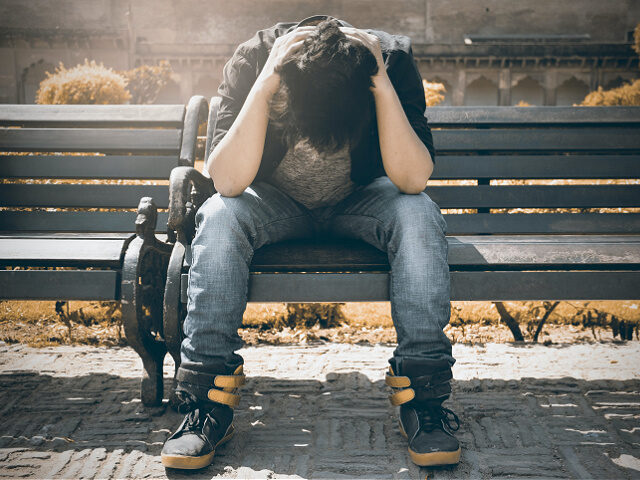Research shows young liberals, especially liberal girls, are more depressed than conservative youth — a trend left-wing writer Matthew Yglesias said could be caused, in part, by “poor behavior by adult progressives, many of whom now valorize depressive affect as a sign of political commitment.”
Yglesias, co-founder and former columnist for left-leaning Vox and current columnist for Bloomberg Opinion, wrote an article on his Substack titled “Why are young liberals so depressed?” The piece explores recent data from the U.S. Centers for Disease Control and Prevention (CDC) showing alarming rates of sadness and depression among American teenagers, along with another study exploring the depression levels of American teens broken down by political affiliation.
“The CDC survey doesn’t ask teens about their political beliefs, but [the study found] not only divergence by gender, but divergence by political ideology,” Yglesias wrote. “Breaking things down by gender and ideology, they find that liberal girls have the highest increase in depressive affect and conservative boys have the least. But liberal boys are more depressed than conservative girls, suggesting an important independent role for political ideology.”
Yglesias argued that, while exploring the impacts of technology and social media on teens is important, he does not “believe that liberal boys are experiencing more depression than conservative girls because they are disproportionately hung up on Instagram-induced body image issues — I think there’s also something specific to politics going on.”
Yglesias credited, in part, what he called the “selection effect,” suggesting that progressive politics have become “a more congenial home for people who are miserable.”
“But I think some of it is poor behavior by adult progressives, many of whom now valorize depressive affect as a sign of political commitment. The thing about depression, though, is that it’s bad,” he continued. “…I think we need some kind of society-level cognitive behavioral therapy to convince people that whatever it is they are worried about, depression is not the answer. Because it never is.”
Yglesias acknowledged the argument by left-wing academics that liberal teens are “depressed because they correctly perceive injustice in the world.” But he noted that progressives have “used their agenda-setting power to make structural racism, pervasive sexism, and rampant socioeconomic inequality into unavoidable features of political discourse” as a method of getting people to pay attention to “what they think are the most important problems.”
“Mentally processing ambiguous events with a negative spin is just what depression is. And while the finding that liberals are disproportionately likely to do it is interesting and important, it’s not sound practice to celebrate that or tell them that they are right to do it,” he wrote.
Yglesias ultimately argued that the left should “stop encouraging people to catastrophize,” which can cause young people to “[dwell] unproductively as problems fester.”
Conservative columnist for the left-wing New York Times, Ross Douthat, praised Yglesias’s analysis on Twitter, stating that “it’s not just a cultural accident that current-era progressivism tends toward catastrophizing, depressive mood; some of that unhappiness was baked in by the triumph of social liberalism that preceded the current era.”
“Social liberalism favors self-invention and damns ‘normativity’; it’s not formally against religion but in practice it’s a secularizing force. ‘Create yourself in an uncreated world’ is the message; that’s a big lift for anyone but esp [sic] for teens set loose in a virtual reality…” Douthat wrote in response.
“Yglesias makes a good argument against a depressive and catastrophic style of political engagement,” he continued. “But some youthful catastrophism is a transferred fear of death, some youthful depression is a response to being asked to constantly self-invent, to find your divine self at age 15. And it’s not a coincidence that the example of an optimistic, anti-depressive liberalism that he ends with is scriptural and Christian.”
“The point to be clear isn’t that ‘secular individualism always makes kids sad and conservatism makes them happy.’ A society can be made miserable by punitive religion and punishing normativity, too,” he concluded. “But that’s not the kind of society into which the iPhone arrived.”

COMMENTS
Please let us know if you're having issues with commenting.